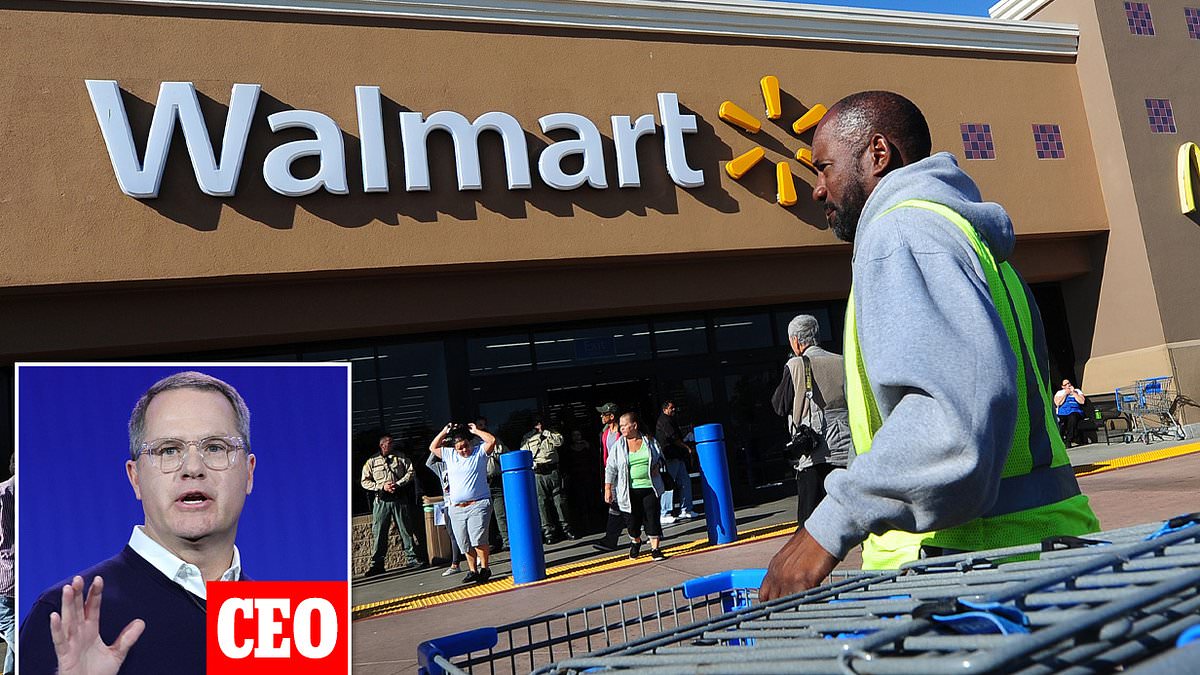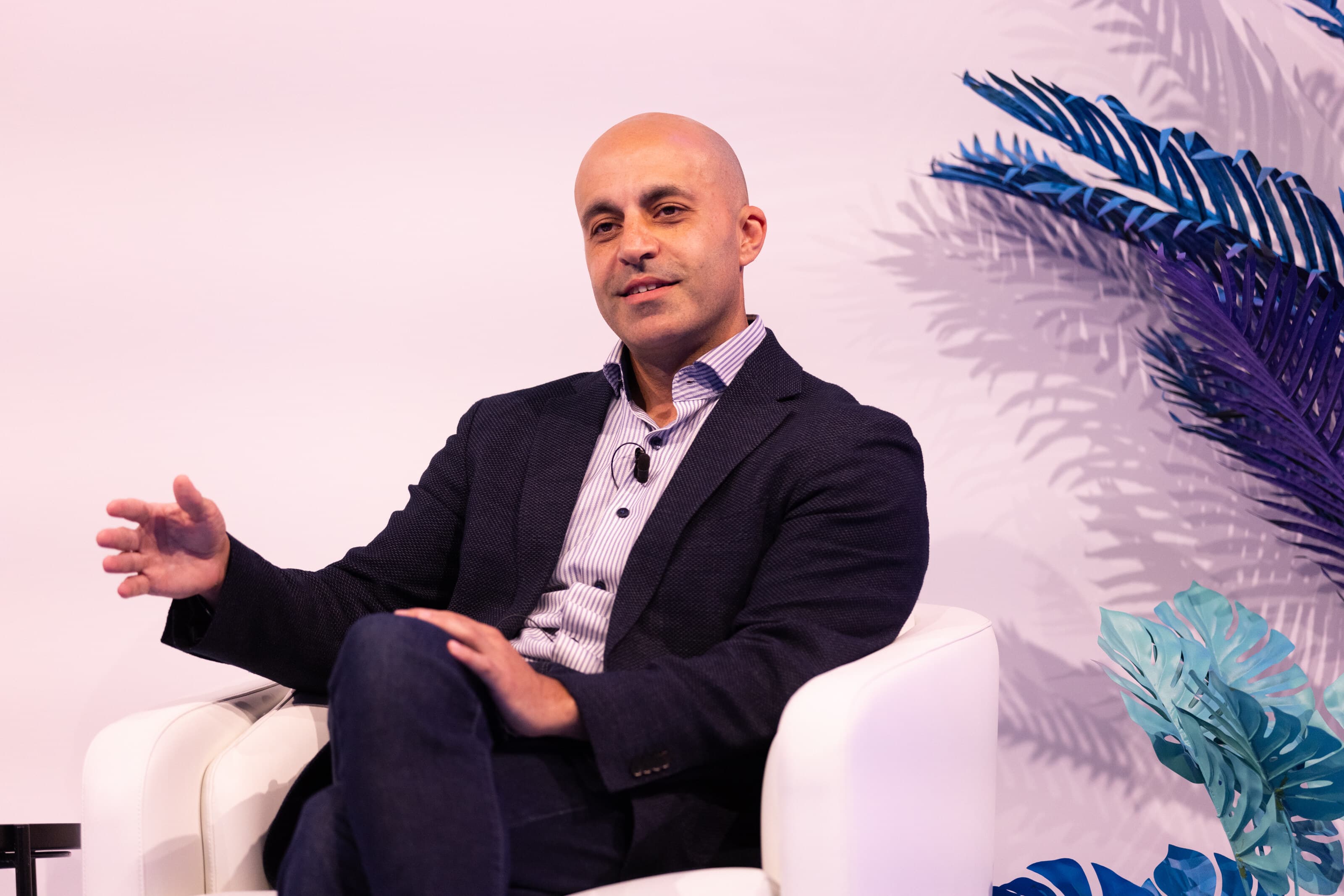America’s biggest employer sounds alarm: ZERO new jobs despite growth – as grim countdown clock is revealed
By Editor,Wilko Martinez-Cachero
Copyright dailymail

Walmart has signaled that its 2.1 million-person workforce will remain stagnant over the coming years despite continued revenue growth – as AI changes the workplace.
The company, which is America’s biggest private employer, revealed their head count will remain flat for up to five years earlier this month.
Walmart US president John Furner was speaking at a conference in Utah when he made the stark admission.
He said: ‘When we look out two years, three years, five years, where I think we’ll be is: we’ll have roughly about the same number of people we have today and we’ll have a larger business.’
Earlier this week, chief executive Doug McMillon said artificial intelligence would wipe out jobs as the company reshapes its workforce.
‘It’s very clear that AI is going to change literally every job. Maybe there’s a job in the world that AI won’t change, but I haven’t thought of it.’
McMillon was speaking alongside OpenAI’s chief economist Ronnie Chatterji at a conference in Walmart’s Arkansas HQ when he made the remarks, with Chatterji saying AI would ravage the job market over the next ’18 to 36 months’.
He said: ‘AI is just starting to ripple through the job market. I think 18 to 36 months, you’re going to see a lot more impact.’
The multinational, worth $820 billion, has remained adamant that ‘the work will shift’ rather than having to cut the workforce.
Over the last year, they have expanded AI operations, with marquee hires, the launch of new programs and a company-wide acceptance that the technology is here to stay.
Furner added: ‘I don’t think we see a path of being lower than what it is today. I think it’s just the work is gonna change.’
In July of this year, however, the company was accused of slashing store-support and training jobs because of AI.
Those cuts included coach and coordinator roles at Walmart Academy, the program that helps its 2.1million total employees ‘build and grow their careers.’
In September, chief people officer Donna Morris announced that Walmart would partner with OpenAI to develop a ‘customized’ training program centered around AI.
Morris wrote: ‘Through Walmart Academy, the largest private training program in the world with over 3.5 million participants, associates will have free access to a tailored version of this certification.
This training is designed to help you at work and in your personal life in an increasingly digital world.’
Walmart employees logged about 5.5million training hours on the academy program in 2023, the company said.
Fidji Simo, CEO of applications at OpenAI, said the technology will ‘help companies operate more efficiently, give anyone the power to turn their ideas into income and create jobs that don’t even exist today.’
However, he also cautioned that it could be disruptive and everyone ‘will have to learn how to work in new ways.’
About 40 percent of employers anticipate ‘reducing their workforce’ in favor of AI, according to a World Economic Forum survey published in January 2025.
Morris previously told Business Insider that she used AI to identify potential job candidates, although Walmart added that her example was not ‘part of a broader companywide approach to source candidates.’
Still, the company has increasingly adopted AI.
In June, Walmart announced that it would make a real-time translation feature in 44 languages available to its employees as part of a ‘powerful new suite of AI tools designed to elevate their roles and experience.’
This summer, Daniel Danker was also hired as executive vice president of AI acceleration, product and design.
Furner, the Walmart US president, predicted that the company would create jobs over the next two years that do not exist today.
He said: ‘I have a job called agent builder. That’s a group of people in the office who are building agents. If you’d asked me a year ago what that is, we wouldn’t have been talking about that as a new role.’
The company expects to add bakers or truck drivers, as well.
Other multi-million dollar companies also believe that their employees can survive the widespread use of AI by learning relevant new skills and adapting to the increasingly influential technology.
Joe Baratta, global head of Blackstone’s private equity strategies, told the Wall Street Journal: ‘I think the history of technology innovation is that people have re-skilled and have found gainful employment in other aspects of the economy.



